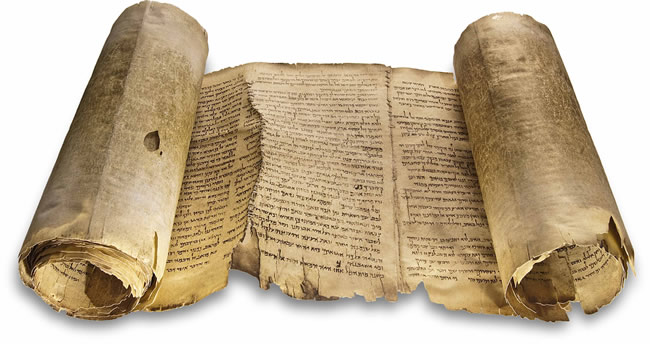Three year olds are fun to watch. Give them a pack of fat crayons and a wad of paper and away they go. They’re tomorrow’s Pablo Picassos or Pro Harts in the making.
Notice the way they hold a crayon. Usually, their chubby fingers wrap around the crayon like they’re making a fist. Then they happily, albeit awkwardly, make their rudimentary marks and scribbles on the blank sheets of paper.
I remember my earliest school days, of learning how to write. Correct hand positioning was all the rage. None of my beloved teachers wanted us to look like we descended from the apes.
So, they issued colourful, triangular prism pencil grips that were firm while also slightly squishy for comfort. These were attached near the pointy end of our HB lead pencils. No more ham fisted, toddler like hand positioning for us. We were on our way to becoming professional scribes.
(With the exception of the boy in my kindy class who insisted on holding his pencil like a dagger, and went about stabbing the air like some knee high psychopath.)
We learnt how to form big bold letters of the alphabet, tracing the dotted shapes, being careful not to cross over the top and bottom borderlines that kept the letters from going astray. We filled plenty of lined workbooks until we didn’t need to trace the letters anymore, but graduated to copying them by sight.
And if you had perfected the letters on your page, you’d be rewarded with a smiley stamp. And if the teacher was in a generous mood, you received a coveted ‘Scratch and Sniff sticker’. Oh, the glorious highs from sniffing strawberry, banana or bubblegum stickers.
The death of many trees later, the practice and repetition of copying letters, words, and sentences improved our speed and fluency. With our burgeoning skills and fertile imaginations, we crafted and hand wrote our very own stories.

The biggest deal was moving up to the 4th grade when we could officially ditch the lead pencils for proper blue biro pens. We felt so grown up.
Then high school days encroached upon us, including the stress inducing senior years and prep for the Higher School Certificate exams.
We didn’t have laptops or tablets back then, so we hand wrote all our essays, notes, formulas, reports and assignments until our fingers cramped up from hours upon hours of serious writing.
We were discouraged from taking photocopies of other student’s notes. The teachers told us that studying from our own handwritten notes was more conducive to enhancing memory than studying from someone else’s notes.
Perhaps—God bless them—they were just trying to foster a strong work ethic, or maybe they just didn’t want a long line of desperate year 12 students queueing by the staff photocopier.
Active vs passive learning
Reading a variety of books, journals and articles helps us on a subconscious level to absorb the fundamentals of literary style and technique. But, if you want to learn how to write for specific genres, here’s one way to do it.
For all the aspiring novelists, journalists, bloggers and poets out there, try copying out passages that inspire you from your favourite authors.
By copying their words in your own handwriting, you discover that every punctuation mark, every full stop, and every word is there for a purpose.
It’s a much slower process than merely running your eyes over the text. By slowing down, you begin to pay attention to details that you might overlook if you were just reading in a breezy off hand way.
“Hand copying a document can produce an intimate connection to the text and its meaning. The hand writer may discover things about the document that they never knew, a passage that challenges or moves them.” (O’Hara cited in Kleon 2018:para 9)
You’re probably wondering by now how this method has anything to do with God’s homework. Allow me to set the scene.
Authority in Israel
In 1 Samuel, we find that Samuel is in his declining years, and his role as judge over Israel is drawing to a close. He appoints his sons, Joel and Abiah to take his place.
However, their deep character flaws become more apparent when they assume office. The brothers spread corruption in the ranks by readily accepting bribes while operating dishonest schemes to line their pockets.
On a grass roots level, there is little to commend the people they serve. The tribes are not unified, and the people are openly rebellious, and unwilling to live under God’s commands. The moral decay evident in Israel’s leadership is but a reflection of the same condition amongst the wider community.
In casting their eyes upon the nations surrounding them, the Israelites see that theirs is the only nation without a king. They are dissatisfied with the current leadership; appointing a king becomes more and more desirable.
They reason that a king would establish a national army to protect them from their enemies. A strong king would unify their fragmented tribes.
The children of Israel demand king
And said unto him, Behold thou art old, and thy sons walk not in thy ways: now make us a king to judge us like all the nations.
And the LORD said unto Samuel, Hearken unto the voice of the people in all that they say unto thee: for they have not rejected thee, but they have rejected me, that I should not reign over them. (I Sam 8:5,7)
God in his omniscience, always knew that His people would reject his reign over them. They didn’t want God to be their king; they wanted an earthly king. Therefore, God made provision for this situation, long before their request to Samuel.
Hundreds of years beforehand, God appointed Moses to set out the guidelines for a future king. The Lord would equip the king with what he needed to lead and govern His people.
And it was closely aligned with doing written scrollwork—God’s homework.
And it shall be, when he sitteth upon the throne of his kingdom, that he shall write him a copy of this law in a book out of that which is before the priests the Levites: (Deuteronomy 17:18)
Hand copying God’s Holy Scriptures
A leader of God’s chosen people—a future of king—would lead by example by investing time for serious study of God’s word. The people would see him daily entering the tent(tabernacle) where the scrolls containing God’s law were kept.
There he would painstakingly hand copy, word for word, the holy scriptures—the whole lot—on scrolls made out of animal skins. Despite the heavy demands of a busy schedule, the king would prioritise this act of copying the law. In so doing, develop intimacy with the Lord and a growing sense of awe by focusing on God.
And it shall be with him, and he shall read therein all the days of his life: that he may learn to fear the LORD his God, to keep all the words of this law and these statutes, to do them: (Deuteronomy 17:19)

Treasuring God’s Word
Once the king completed this momentous task of hand writing a personal copy of the scriptures, he was expected to continue learning. His scrolls would be within close reach, because he was expected to read and study the word of God until the day he drew his last breath.
He was called to a commitment to lifelong study and respect for God. He was to esteem the law and obey God’s commands.
That his heart be not lifted up above his brethren, and that he turn not aside from the commandment, to the right hand, or to the left: to the end that he may prolong his days in his kingdom, he, and his children in the midst of Israel. (Deuteronomy 17:18-20)
Finding Wisdom and Humility
By definition, wisdom is the right application of knowledge. Wisdom is making good decisions, sound judgements and seeing life from God’s perspective.
Through writing out the scripture, the king would receive godly wisdom. Perhaps he might encounter a sentence or passage that he didn’t understand. The king would learn humility by asking the priest to explain and illuminate the meaning.
It would have taken a significant amount of time to hand write the Pentateuch—the first five books of the Bible. This slow pace allowed him to think and quietly absorb the words of life.
His lofty status as a king did not exempt him from keeping the law. He was not above the law.
The true test of a king was in his commitment to God’s values.
We may not be kings but we are royalty. We are the sons and daughters of the King of Kings and Lord of Lords. May we be like King David who said,
Teach me, O LORD, the way of thy statues; and I shall keep it unto the end.
Give me understanding, and I shall keep thy law; yea, I shall observe it with my whole heart.
Make me to go in the path of thy commandments; for therein do I delight. (Psalm 115:33-35)
Bibliography
Barnett, J. 2020. ‘How Did Solomon Ruin His Life-By Neglecting The Wisdom God Offered Him.’, Discoverthebook.org. Retrieved 20 November 2022 from
https://discoverthebook.org/how-did-solomon-ruin-his-life-by-neglecting-the-wisdom-god-offered-him/
Christian, M. ‘Seven Benefits of Hand Copying Scripture’, MichaelChristian.US. Retrieved 20 November 2022 from
7 Benefits of Hand Copying Scripture (That Improve Your Spiritual Life)
Kleon, A. 2018, ‘Copying is How We Learn’, Austen Kleon.com. Retrieved 20 November 2022 from
Copying is how we learn
Macarthur, J. 2019, The Macarthur Study Bible 2nd Edition, Thomas Nelson Publishers, China.
Walton, J. 2000, The IVP Bible Background Commentary Old Testament, IVP Academic, Illinois.


